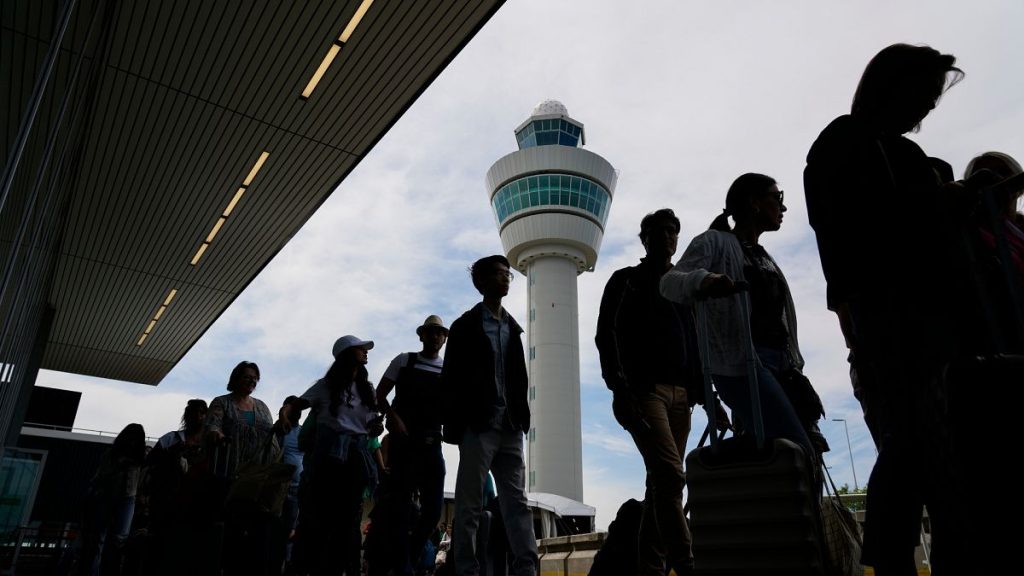New automated checks using biometric data are set to be introduced in the European Union this autumn, as part of the Entry/Exit System (EES) for travellers from outside the bloc. This system will replace traditional passport stamping and require biometric data including fingerprints, facial scans, and passport information to be collected upon entry. Despite facing setbacks, the EES is set to be implemented in the coming months, impacting travellers and potentially leading to the end of last-minute bookings.
With the introduction of the EES, airlines will now be required to collect more detailed Advanced Passenger Information (API) from passengers up to 48 hours before departure. Airlines must receive clearance for passengers to travel, with fines for allowing non-compliant passengers to board. This new process has raised concerns among airlines, such as the parent company of Ryanair, about the impact on last-minute ticket sales due to the strict deadline and complexity of the verification process. Additionally, delays are expected for passengers indicating residency in an EU country on their API, further adding to potential disruptions for travellers.
In addition to last-minute booking concerns, airlines have also warned of longer waiting times at border control and a lack of support for travellers during the EES implementation. Trade associations have raised issues with the EU Commissioner for Home Affairs, including the need for 24/7 support for airlines assisting passengers facing EES issues, lack of communication or information campaigns, inconsistent national testing, delays in the pre-registration app, and a lack of contingency plans for unprepared countries. Furthermore, the EES launch could lead to increased border processing times and a negative impact on the overall travel experience for passengers.
The launch of the EES has already been delayed multiple times, with airlines cautioning that there is a limited timeframe to prepare for its implementation during the peak travel season before the planned autumn launch. The official registration date for passengers has not yet been set, with the EU emphasizing the need for member states to expedite their preparations to ensure a smooth implementation of the system. Concerns remain about member states falling behind in equipping border crossing points, prompting calls for accelerated preparations and coordination between the EU, member states, airlines, and airports to minimize disruptions for passengers and stakeholders.
Overall, the introduction of the EES in the EU this autumn represents a significant shift in travel procedures for non-EU passengers, with the potential to impact booking processes, border control efficiency, and passenger support services. Airlines are urging for smoother preparations and coordination to ensure a seamless transition to the new automated system, emphasizing the need for timely communication, support mechanisms, and contingency planning. As the launch date approaches, stakeholders continue to work towards overcoming challenges and ensuring a successful implementation of the EES within the European Union.


